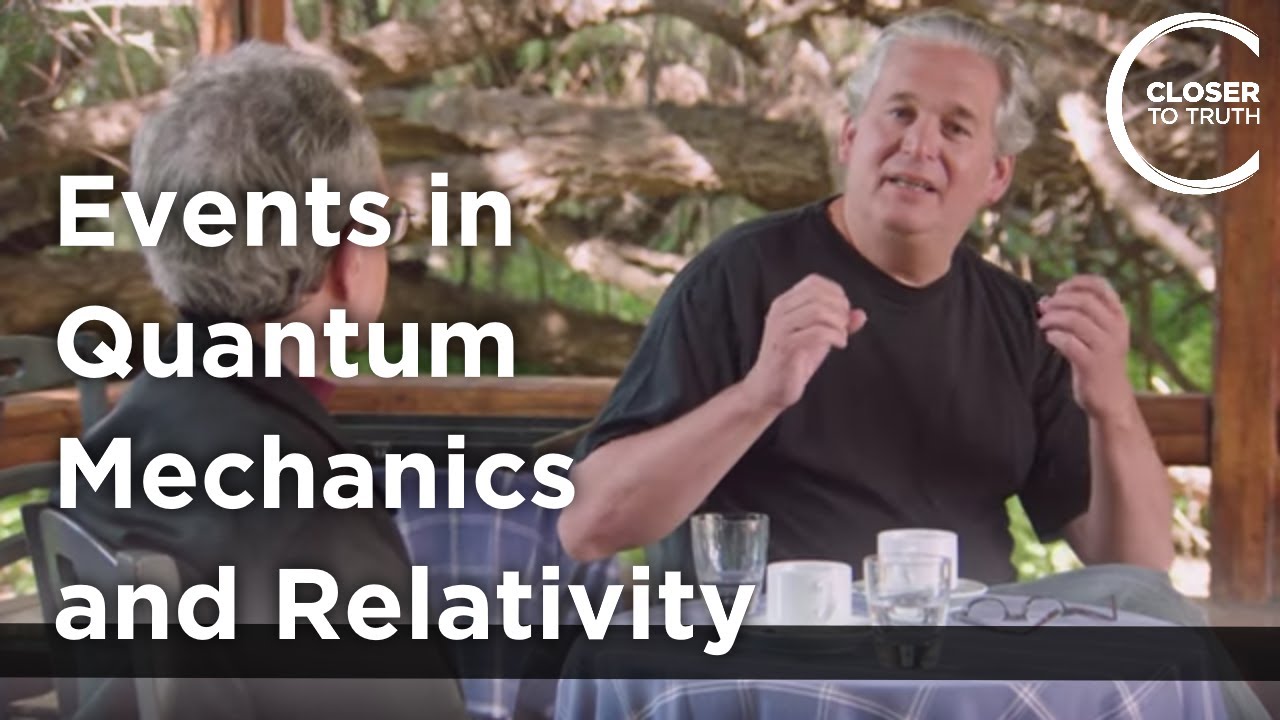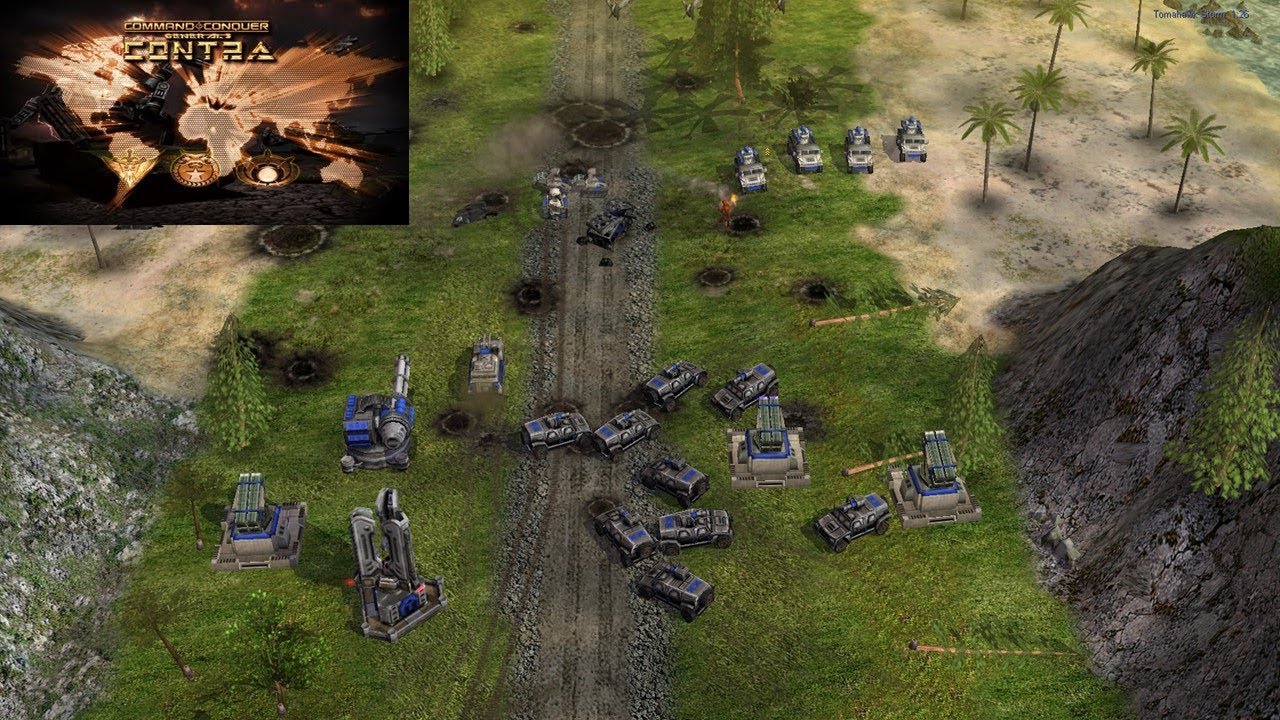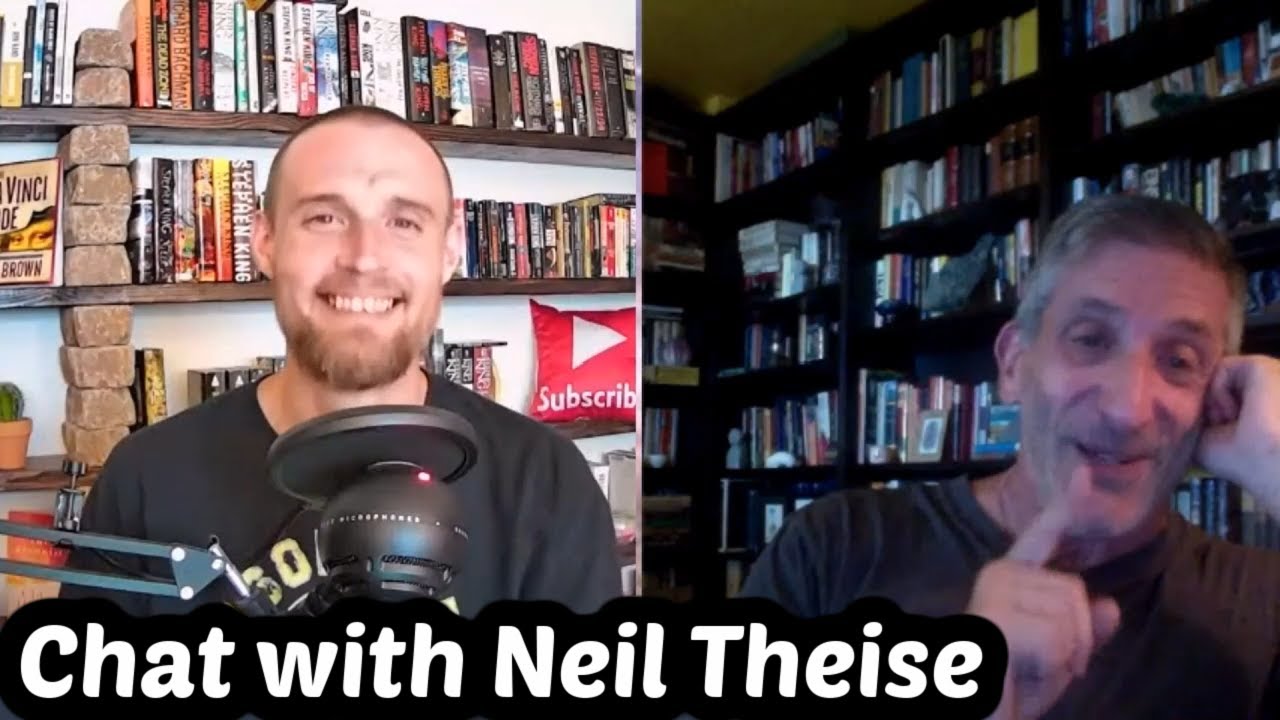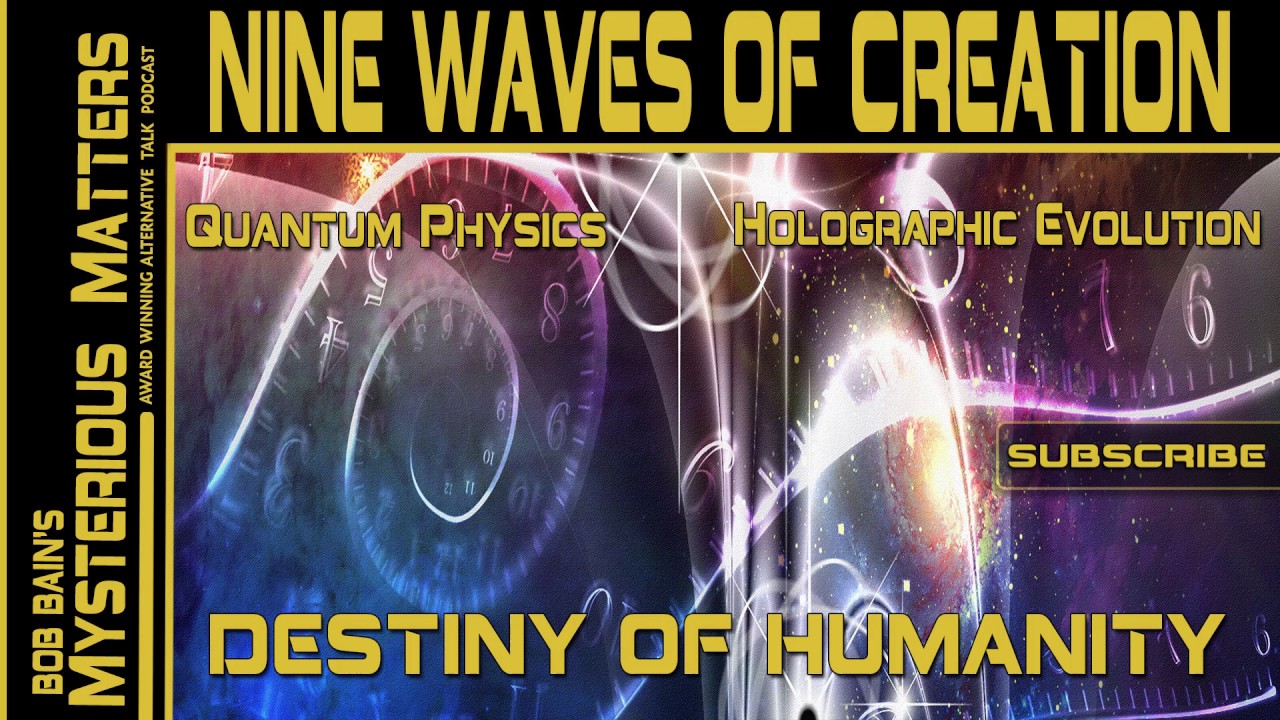Closer To Truth
Quantum mechanics, the best theory of the very small, and general relativity, the best theory of the very large, are deeply incompatible. One way to compare and contrast the two is by discerning the nature of an “event” in each. It is very different.
Free access to Closer to Truth’s library of 5,000 videos: http://bit.ly/376lkKN
Watch more interviews on quantum physics and general relativity: https://bit.ly/38jlKla
David Z Albert, PhD, is Professor of Philosophy and Director of the MA Program in The Philosophical Foundations of Physics at Columbia. He received his BS in physics from Columbia College (1976) and his doctorate in theoretical physics from The Rockefeller University (1981).
Register for free at CTT.com for subscriber-only exclusives: http://bit.ly/2GXmFsP
Closer to Truth presents the world’s greatest thinkers exploring humanity’s deepest questions. Discover fundamental issues of existence. Engage new and diverse ways of thinking. Appreciate intense debates. Share your own opinions. Seek your own answers.
Source




waffle: there is no measurement problem because there is no measurement
What a shady character. The problem with physics is humans!
Is the quantum wave function random or determined? If quantum wave function determined, what causes the quantum wave function with energy frequency and probability distribution?
The observer is the observed. When the observer is not the observed, there is duality, a measurement, a model, time.
We need more David Albert !! 😊
I am Electric Youth !
My hometown Don Carlos,Bukidnon,Philippines is balance of Sunshine and Rain !
I am Climate Engineer !
“we are getting there” – the concept of a limit
we are getting there – the concept of a limit
Very interesting and worthwhile video.
Hidden variable were turned over by bells theorem i think. Objective mind independent world still true tho. The world exists but not knowable with 100% precision as we are use to in Newtonian world.
Oh damn I was many worlds, I was collapse, what most accepted now?
Have you talked about the universe being a living organism yet? Who’s the expert at that?
Philosopher of Physics is the truth…quantum mechanics sure isn't science even though a lot of people want it to be. My suggestion would be to decouple all philosophical pursuits from quantum mechanics…which means call it what it really is, anything but real science. Many worlds theory is garbage…most of quantum mechanics is garbage philosophy.
Still no closer to the truth,when the gods are part of any equation.
Without consciousness….. without experience….not knowing history… no entanglement… nothing matter… everything disconnect.
I'm certainly no physicist… but every other physicist I listen to does NOT agree with Albert that we've put the genie back in the bottle when it comes to the measurement problem. Far from.
scientist still haven't a clue.
For those who are disappointed that certain things weren’t mentioned in the interview…
You can’t expect ALL of us to compact all that YOU know to be included during someone else’s interview.
It makes more sense to compile what resonates with you and build from there. Then go out there and share what YOU’VE come to discover for yourself. I guarantee you’ll never be disappointed or complain when someone doesn’t say what you would’ve like to hear. And you’ll be a contributor of knowledge, experiences and solutions.
David Albert has been debunked by the research team of Yakir Aharonov and the research of Professor Jean Bricmont
Yakir Aharonov: "There is a non-local exchange that depends on the modular variable….I'm saying that I have now an intuitive picture to understand interference by saying that when a particle moves through two slits, it always goes through one slit or the other, but it knows which other slit, the slit through which it did not go, whether it is open or not, because there are nonlocal equations of motion." Finally making sense of the double-slit experiment (2017, Aharonov): The nonlocal equations of motion in the Heisenberg picture thus allow us to consider a particle going through only one of the slits, but it nevertheless has nonlocal information regarding the other slit…. The Heisenberg picture, however, offers a different explanation for the loss of interference that is not in the language of collapse: if one of the slits is closed by the experimenter, a nonlocal exchange of modular momentum with the particle occurs….Alternatively, in the Heisenberg picture, the particle has both a definite location and a nonlocal modular momentum that can “sense” the presence of the other slit and therefore, create interference." as John Bell states: "Is it not clear from the diffraction and interference patterns, that the motion of the particle is directed by the wave?"
That comment could not be farther from the real truth 2021. Nanotech is a new a vaster horizon to explore.
Why consciouness would have anything to do with the measurement problem ffs? You think before the arrival of humans, there was no classical reality? No stars, no planets, no plants, no animals?? The entire universe had to wait until some random human made the first experiment with a beam of particles??
I think it's a mistake to overlook conciousness in these discussions.
It seems a decision made purely to avoid the difficult problems
No mention of decoherence? Not that it’s necessarily right, but it’s as relatively demystifying as an approach as are Bohm’s and GRW’s approaches, has come to prominence in approximately the same timeframe, and many physicists espouse the idea in general terms.
Events, let it be remembered, are just features that are identifiable by some algorithm as the signal level varies on a signal line out of an apparatus: there’s nothing mysterious about there being events, because we have chosen materials and engineered them to produce identifiable events. If a device doesn’t produce events, we monitor the output from some other device that does.
the reality is deep inside the atom, what humans experience and its Implications of logic is minor (not the reality)…
there are calculations to calculate the dimensions thus space-time, speed… to recognize those concepts…
a new revolutionary way of thinking is required to make a real progress..
all exact sciences especially mathematics and physics must be reviewed regarding the new way of thinking, the understanding of space-time, speed, momentum… etc is not enough (need deeper understanding)
we are getting there! what all this absurdity! there is no any chance to get there! it needs the emerging of a real rational intelligent human entities!
the current theories are incomplete!
great video BUT he left out Simulation Theory as the 4th one to explain quantum wierdness and collapse.
more probable than multiverse which many of you take seriously 😉
Quantum mechanics will lead us to primitive age
Is the Uncertainty Principle considered dead?
So what are "events" in quantum mechanics and relativity?
Denial in the Physicist Community
Many physicists try to deny these findings or give alternate readings of the results. Physicist Henry Stapp rightly points out physicists deny this philosophical conclusion because of "metaphysical prejudice"
"…one must ask whether it is really beneficial for scientists to renounce for all time the aim of trying to understand the world in which we live, in order to maintain a metaphysical prejudice that arose from a theory…" (classical Newtonian mechanics and materialism) "—that is known to be fundamentally incorrect?"
The fundamental role of the observer is even harder to deny with the experimental confirmation of the Kochen-Specker theorem in 2011.
The Kochen-Specker (KS) theorem states that "the non-contextual theories (NCT) are incompatible with quantum mechanics. Non-contextuality means that the value for an observable predicted by such a theory does not depend on the experimental context…"
So when we are performing experiments, we are not just passively observing how nature progresses, but are actively affecting what the outcome will be by how we observe things.
"The values you obtain when you measure its properties depend on the context. So the value of property A, say, depends on whether you chose to measure it with property B, or with property C. In other words, there is no reality independent of the choice of measurement."
"Quantum theory denies the existence of a physically real world independent of its observation."
The measurement problem is only a problem if one cannot accept that the observer plays a fundamental role in shaping physical reality. We are not passively observing the world, but actively involved.
"A delayed choice quantum eraser experiment, first performed by Yoon-Ho Kim, R. Yu, S.P. Kulik, Y.H. Shih and Marlan O. Scully, and reported in early 1999, is an elaboration on the quantum eraser experiment that incorporates concepts considered in Wheeler's delayed choice experiment. The experiment was designed to investigate peculiar consequences of the well-known double slit experiment in quantum mechanics as well as the consequences of quantum entanglement.
The experiment supports the observer effect in quantum measurements.
…
"Further studies have shown that even observing the results after the experiment leads to collapsing the wave function and loading a back-history as shown by delayed choice quantum eraser."
Basically, what causes the collapse is knowledge. And knowledge requires a knower.
"The observer plays a key role in deciding the outcome of the quantum measurments – the answers, and the nature of reality, depend, in part on the questions asked."
John Archibald Wheeler said: "It begins to look as if we ourselves, by a last minute decision, have an influence on what a photon will do when it has already accomplished most of its doing…we have to say that we ourselves have an undeniable part in shaping what we have always called the past. The past is not really the past until it has been registered. Or put it another way, the past has no meaning or existence unless it exists as a record in the present."
A conscious choice affects the behavior of previously measured, but unobserved particles.
Physicist Asher Peres, who elaborated the experimental results with his delayed choice for entanglement swapping, says:
"If we attempt to attribute an objective meaning to the quantum state of a single system, curious paradoxes appear: quantum effects mimic not only instantaneous action-at-a-distance but also, as seen here, influence future actions on past events, even after these events have been irrevocably recorded."
Our choice affects how the particle acted in the past. The factor of time has nothing to do with quantum mechanincs. This was predicted by quantum mechanics and the exact same result is what we see when we put it to experimental test.
0:46
vom.in.net